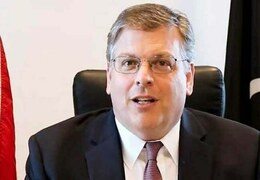Schools and colleges, not seminaries, major reasons behind extremism: Fawad
ISLAMABAD: Federal Minister for Information and Broadcasting Fawad Chaudhry on Thursday said, it is not the seminaries rather these are the schools and the colleges, which are the major reasons behind extremism in the country.
Speaking at a seminar organised by a local think tank here, he reiterated that it is not the seminaries which are the root cause of extremism – a popular belief in the country – the actual reason for the menace is the schools where teachers were hired as a “plot to basically preach extremism in 1990s”.
He continued the state and government are not fully prepared to deal with extremism, adding that they had to take a step back, while dealing with the Tehreek-e-Labbaik Pakistan (TLP).
The TLP held violent protests in the country last month following which, on October 31, the government and the party reached a secret accord, within a few days of which the party was de-proscribed and its chief, Saad Rizvi, was released.
“Religious extremism was seen more in regions that are in India now. Areas over here (Pakistan) never had religious extremism to the extent [seen today],” he said, regretting that “Pakistan faces a grave danger today,” he added.
Chaudhry lamented that the menace of extremism is one that could isolate and destroy a country, and unluckily Pakistan is pushed towards it for political and foreign policy reasons.
He noted that a person is labelled an infidel if his/her views differ from the prevalent thought pattern found in society.
“The religion of Islam teaches balance and peace. The teachings of Islam or any other religion are not the issue, as the main issue is how you interpret the religion,” he added. Shedding light on other matters, he said “we have destroyed our policing and administrative system” and have not even found an alternative for it.
“If you cannot even save the lives of the people, how will you create a soft image? A state which cannot establish its writ for a prolonged period cannot survive for long,” he added. He noted that when the writ of the state comes to an end, extremist elements begin to hold sway, adding upholding the law is crucial to bringing a positive change in society.
Chaudhry gave the example of late Jamiat Ulema-i-Islam-Fazl leader and religious scholar Maulana Hassan Jan, whom he said was murdered for giving a fatwa that declared suicide attacks forbidden in Islam. Similarly, he added, for such reasons many other scholars were unable to come to Pakistan.
“Likewise, when a matter is taken up by the Council of Islamic Ideology and I ask that the other side’s perspective also be presented, they ask back, ‘do you want us killed?” the minister said. He claimed that scholars in Pakistan were afraid of speaking up, adding that society itself had to rectify the narrative of extremism.
The minister recalled that at the time of creation of Pakistan, “it was the land of Sufis [and] home to [their] tombs.”
He continued that around 300 years ago, there was no religious extremism in today’s Khyber-Pakhtunkhwa, Punjab, and the other areas in the country.
Copyright Business Recorder, 2021

























Comments
Comments are closed.